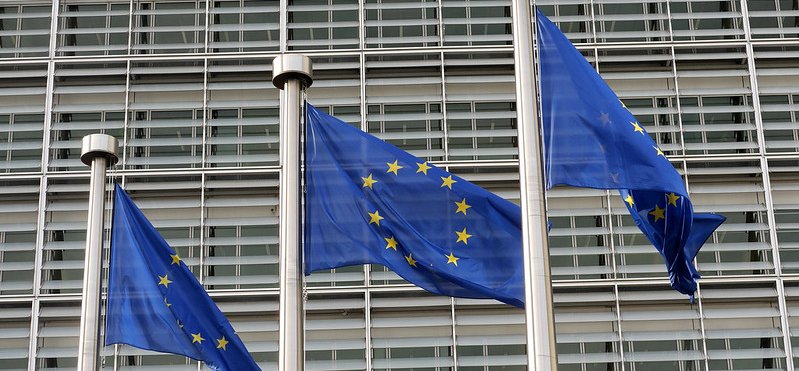
The maritime industry faces rising cyber threats, with Nigerian gangs among the most active attackers of shipping firms. HFW lawyers say ‘man-in-the-middle’ frauds are now common, letting hackers intercept communications and steal sensitive financial or operational data.
Costs from cyber attacks are rising sharply, with average mitigation expenses for shipping firms doubling to $550,000 (£410,000) between 2022 and 2023. In cases where hackers remain embedded, ransom payments can reach $3.2m.
The rise in attacks coincides with greater digitisation, satellite connectivity such as Starlink, and increased use of onboard sensors.
Threats now extend beyond financial extortion, with GPS jamming and spoofing posing risks to navigation. Incidents such as the grounding of MSC Antonia in the Red Sea illustrate potential physical damage from cyber interference.
Industry regulators are responding, with the International Maritime Organization introducing mandatory cyber security measures into ship management systems. Experts say awareness has grown, and shipping firms are gradually strengthening defences against criminal and state cyber threats.
Would you like to learn more about AI, tech and digital diplomacy? If so, ask our Diplo chatbot!

The 2026 Adwanted Media Research Awards will feature a new category for Best Use of AI in Research Projects, reflecting the growing importance of this technology in the industry.
Head judge Denise Turner of IPA said AI should be viewed as a tool to expedite workflows, not replace human insight, emphasising that researchers remain essential to interpreting results and posing the right questions.
Route CEO Euan Mackay said AI enables digital twins, synthetic data, and clean-room integrations, shifting researchers’ roles from survey design to auditing and ensuring data integrity in an AI-driven environment.
OMD’s Laura Rowe highlighted AI’s ability to rapidly process raw data, transcribe qualitative research, and extend insights across strategy and planning — provided ethical oversight remains in place.
ITV’s Neil Mortensen called this the start of a ‘gold rush’, urging the industry to use AI to automate tedious tasks while preserving rigorous methods and enabling more time for deep analysis.
Would you like to learn more about AI, tech, and digital diplomacy? If so, ask our Diplo chatbot!

US electricity prices are rising as the energy demands of data centres surge, driven by the rapid growth of AI technologies. The average retail price per kilowatt-hour increased by 6.5% between May 2024 and May 2025, with some states experiencing significantly sharper increases.
Maine saw the sharpest rise in electricity prices at 36.3%, with Connecticut and Utah following closely behind. Utilities are passing on infrastructure costs, including new transmission lines, to consumers. In Northern Virginia, residents could face monthly bill increases of up to $37 by 2040.
Analysts warn that the shift to generative AI will lead to a 160% surge in energy use at data centres by 2030. Water use is also rising sharply, as Google reported its facilities consumed around 6 billion gallons in 2024 alone, amid intensifying global AI competition.
Tech giants are turning to alternative energy to keep pace. Google has announced plans to power data centres with small nuclear reactors through a partnership with Kairos Power, while Microsoft and Amazon are ramping up nuclear investments to secure long-term supply.
President Donald Trump has pledged more than $92 billion in AI and energy infrastructure investments, underlining Washington’s push to ensure the US remains competitive in the AI race despite mounting strain on the grid and water resources.
Would you like to learn more about AI, tech, and digital diplomacy? If so, ask our Diplo chatbot!

France’s national cybersecurity agency, CERT-FR, has confirmed that Apple issued another set of threat notifications on 3 September 2025. The alerts inform certain users that devices linked to their iCloud accounts may have been targeted by spyware.
These latest alerts mark this year’s fourth campaign, following earlier waves in March, April and June. Targeted individuals include journalists, activists, politicians, lawyers and senior officials.
CERT-FR says the attacks are highly sophisticated and involve mercenary spyware tools. Many intrusions appear to exploit zero-day or zero-click vulnerabilities, meaning no victim interaction must be compromised.
Apple advises victims to preserve threat notifications, avoid altering device settings that could obscure forensic evidence, and contact authorities and cybersecurity specialists. Users are encouraged to enable features like Lockdown Mode and update devices.
Would you like to learn more about AI, tech and digital diplomacy? If so, ask our Diplo chatbot!

The European Union’s NIS2 directive has officially come into force, imposing stricter cybersecurity duties on thousands of organisations.
Adopted in 2022 and implemented into national law by late 2024, the rules extend beyond critical infrastructure to cover more industries. Energy, healthcare, transport, ICT, and even waste management firms now face mandatory compliance.
Measures include multifactor authentication, encryption, backup systems, and stronger supply chain security. Senior executives are held directly responsible for failures, with penalties ranging from heavy fines to operational restrictions.
Companies must also report major incidents promptly to national authorities. Unlike ISO certifications, NIS2 requires organisations to prove compliance through internal processes or independent audits, depending on national enforcement.
Analysts warn that firms still reliant on legacy systems face a difficult transition. Yet experts agree the directive signals a decisive shift: cybersecurity is now a legal duty, not simply best practice.
Would you like to learn more about AI, tech and digital diplomacy? If so, ask our Diplo chatbot!

The US Justice Department has filed a lawsuit against Uber, accusing the ride-hailing giant of discriminating against passengers with disabilities.
The DOJ alleges that Uber drivers frequently deny service to people using wheelchairs or travelling with service animals, and sometimes impose unfair cancellation fees. Prosecutors say such practices cause economic and emotional harm and breach the Americans with Disabilities Act.
Uber denies the allegations, insisting it enforces a zero-tolerance policy for confirmed denials. The company says it deactivates drivers who breach accessibility rules and highlights reminders it issues to drivers about their legal obligations.
Uber has faced similar claims in the past. It reached a settlement with the DOJ in 2022, paying millions to more than 65,000 disabled riders. The new lawsuit, filed in the US California’s Northern District, follows a DOJ investigation launched last year.
Would you like to learn more about AI, tech and digital diplomacy? If so, ask our Diplo chatbot!

Real-time translation is becoming a standard feature across consumer tech, with Samsung, Google, and Apple all introducing new tools. Apple’s recently announced Live Translation on AirPods demonstrates the utility of such features, particularly for travellers.
YouTube has joined the trend, expanding its multi-language audio feature to millions of creators worldwide. The tool enables creators to add dubbed audio tracks in multiple languages, powered by Google’s Gemini AI, replicating tone and emotion.
The feature was first tested with creators like MrBeast, Mark Rober, and Jamie Oliver. YouTube reports that Jamie Oliver’s channel saw its views triple, while over 25% of the watch time came from non-primary languages.
Mark Rober’s channel now supports more than 30 languages per video, helping creators reach audiences far beyond their native markets. YouTube states that this expansion should make content more accessible to global viewers and increase overall engagement.
Subtitles will still be vital for people with hearing difficulties, but AI-powered dubbing could reduce reliance on them for language translation. For creators, it marks a significant step towards making content truly global.
Would you like to learn more about AI, tech, and digital diplomacy? If so, ask our Diplo chatbot!

The Swiss government has proposed a new regulation that would require digital service providers with more than 5,000 users to collect government-issued identification, retain subscriber data for six months, and, in some cases, disable encryption. The proposal, which does not require parliamentary approval, has triggered alarm among privacy advocates and technology companies worldwide.
The measure would impact services such as VPNs, encrypted email, and messaging platforms. The regulation would mandate providers to collect users’ email addresses, phone numbers, IP addresses, and device port numbers, and to share them with authorities upon request, without the need for a court order.
Swiss official Jean-Louis Biberstein emphasised that the proposed regulation includes strict safeguards to prevent mass surveillance, framing the initiative as a necessary measure to address cyberattacks, organised crime, and terrorism.
While the timeline for implementation remains uncertain, the government of Switzerland is committed to a public consultation process, allowing stakeholders to provide input before any final decision is made.
Would you like to learn more about AI, tech and digital diplomacy? If so, ask our Diplo chatbot!

South Korea and NATO have pledged closer cooperation on cybersecurity following high-level talks in Seoul this week, according to Yonhap News Agency.
The discussions, led by Ambassador for International Cyber Affairs Lee Tae Woo and NATO Assistant Secretary General Jean-Charles Ellermann-Kingombe, focused on countering cyber threats and assessing risks in the Indo-Pacific and Euro-Atlantic regions.
Launched in 2023, the high-level cyber dialogue aims to deepen collaboration between South Korea and NATO in the cybersecurity domain.
The meeting followed talks between Defence Minister Ahn Gyu-back and NATO Military Committee chair Giuseppe Cavo Dragone during the Seoul Defence Dialogue earlier this week.
Dragone said cooperation would expand across defence exchanges, information sharing, cyberspace, space, and AI as ties between Seoul and NATO strengthen.
Would you like to learn more about AI, tech, and digital diplomacy? If so, ask our Diplo chatbot!

The UK’s National Cyber Security Centre has released version 4.0 of its Cyber Assessment Framework to help organisations protect essential services from rising cyber threats.
An updated CAF that provides a structured approach for assessing and improving cybersecurity and resilience across critical sectors.
Version 4.0 introduces a deeper focus on attacker methods and motivations to inform risk decisions, ensures software in essential services is developed and maintained securely, and strengthens guidance on threat detection through security monitoring and threat hunting.
AI-related cyber risks are also now covered more thoroughly throughout the framework.
The CAF primarily supports energy, healthcare, transport, digital infrastructure, and government organisations, helping them meet regulatory obligations such as the NIS Regulations.
Developed in consultation with UK cyber regulators, the framework provides clear benchmarks for assessing security outcomes relative to threat levels.
Authorities encourage system owners to adopt CAF 4.0 alongside complementary tools such as Cyber Essentials, the Cyber Resilience Audit, and Cyber Adversary Simulation services. These combined measures enhance confidence and resilience across the nation’s critical infrastructure.
Would you like to learn more about AI, tech and digital diplomacy? If so, ask our Diplo chatbot!










